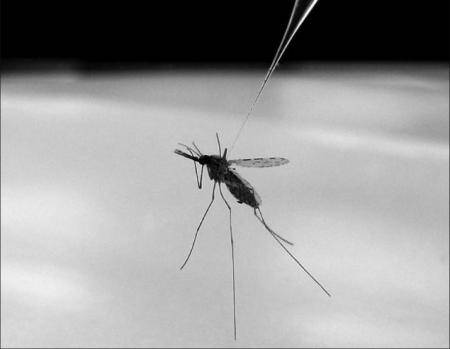Mosquitoes – responsible for transmitting malaria, Zika, dengue, West Nile, chikungunya, yellow fever – are mankind’s most successful serial killers. Whilst at the Wellcome Sanger Institute and the NIH, NIH Oxford-Cambridge Program Scholar Dr. Gianmarco Raddi created the first cell atlas of mosquito immune cells and discovered new types of mosquito immune cells, including a rare cell type that could be involved in limiting malaria infection. Dr. Raddi and colleagues also identified molecular pathways implicated in controlling the malaria parasite. Their results – published in Science – are the most comprehensive transcriptomic study of a whole invertebrate organism immune system to-date and represent an important advance in the fight to eradicate malaria. The new knowledge will prove useful in developing vector control strategies not only for malaria, but also Zika and Dengue, as well as to further more fundamental immunological understanding in model systems such as Drosophila.
“We have carried out the first ever large-scale survey of the mosquito immune system, and using single cell sequencing technology we found immune cell types and cell states that had never been seen before. One of these cell types – the megacytes – appear to turn on anti-malarial defences. This is the first time a cell type has been associated to malaria infection control: it is a very exciting discovery” said Dr. Raddi.

Looking to the future, Dr. Raddi aims to combine academic research with clinical medicine and journalism, with particular attention to acute medicine, global health and infectious diseases. As the public’s response to the coronavirus outbreak demonstrates, science and medicine are often not enough. Even the most effective medications or public health responses can be blunted by panic and scientific illiteracy. Doctors and scientists need to engage the public with both logos – that comes easy – and pathos. Dr. Raddi’s holy grail? A regular column, and the professional leverage to engage the wider public and help stem the tide of anti-scientific thought.

